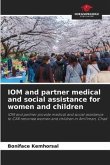This book is premised on Intimate Partner Violence (IPV) as a problem that has gone silent for Centuries in Uganda with some of common legislation that have bearing on IPV being fruitless. The Book looks at some of the common causes of IPV, common forms of IPV, its social constructions, prevalence and related risk factors for its perpetration. The book puts forward some the common protection mechanisms that could be adopted and highlights the associated impacts of IPV. It looks at some of the Uganda' legal framework that has bearing on IPV from a simplified perspective. International and regional instruments that call for protection of the most vulnerable persons from IPV are also considered. The book generally presents a simplified overview of IPV, gives a brief history of IPV, puts foreword some of the common forms of IPV and gives some of the risk factors that are associated with IPV. Key recommendations for the elimination of IPV are also highlighted in this book.








